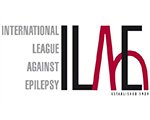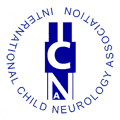Headache in Children
Description
Headaches in children are common and usually not serious. Like adults, children can experience various types of headaches, including tension headaches, migraines, and cluster headaches, which can affect their school performance and quality of life.
Types
- Tension Headaches: Often related to stress, lack of sleep, or poor posture. These are usually characterized by a dull, pressing pain on both sides of the head.
- Migraines: Can be more disabling, with symptoms including throbbing pain, nausea, vomiting, and sensitivity to light or sound. Some children also experience aura, such as visual disturbances, before a migraine begins.
- Cluster Headaches: Although rare in children, they are very painful and occur in groups or "clusters" over a period of weeks or months.
- Sinus Headaches: Often associated with sinus infections; these involve pain around the forehead and cheeks.
Symptoms
Symptoms can vary widely but typically include:
- Pain that may be sharp, throbbing, or dull
- Upset stomach and vomiting (especially common in pediatric migraines)
- Sensitivity to light, sounds, or smells
- Looks or acts very sick
Causes
Common triggers and causes in children include:
- Illnesses such as colds, flu, or ear infections
- Emotional stress or anxiety
- Changes in sleep patterns
- Environmental factors such as weather changes or allergens
- Skipped meals or dehydration
- Overexertion during physical activity
When Should I Contact a Doctor?
Seek medical advice if your child experiences:
- Frequent headaches affecting their daily activities
- Headaches that occur under age 6
- Severe headaches that wake your child from sleep
- Headaches accompanied by a stiff neck, rash, confusion, vomiting, or fever
- Headaches following an injury
Diagnosis
Diagnosing headaches in children involves:
- Detailed medical history and symptom tracking
- Physical and neurological examinations
- Imaging tests like MRI or CT scans if a more serious condition is suspected
- Referral to a pediatric headache specialist if necessary
Treatment
Treatment depends on the type, frequency, and cause of headaches:
- Medication: Age-appropriate pain relievers and preventive medications if headaches are frequent.
- Lifestyle Adjustments: Ensuring adequate hydration, regular meals, sufficient sleep, and appropriate stress management.
- Behavioral Therapy: Techniques to help manage stress and cope with pain.
Self-Management
Helpful strategies include:
- Teaching your child to recognize and avoid headache triggers
- Encouraging regular physical activity
- Maintaining a headache diary to track patterns
- Relaxation techniques and warm baths to ease symptoms
Prevention
Preventive tips include:
- Consistent sleep schedule
- Balanced diet with regular meals
- Adequate hydration throughout the day
- Encouraging regular breaks from screen time
- Stress management strategies appropriate for children
Professor Ubaid Shah is committed to providing comprehensive care for pediatric headache disorders, employing a multidisciplinary approach that includes the latest in diagnostic and treatment strategies tailored to the needs and lifestyles of children and their families. His goal is to enable children to live their lives fully, minimizing the impact of headaches on their development and daily activities.








